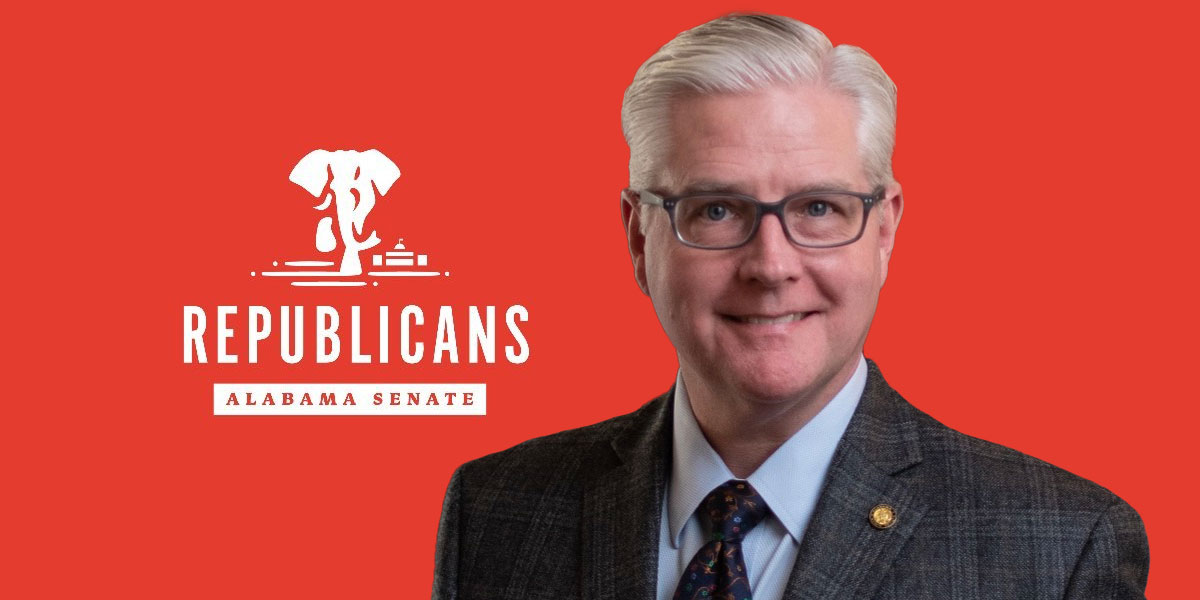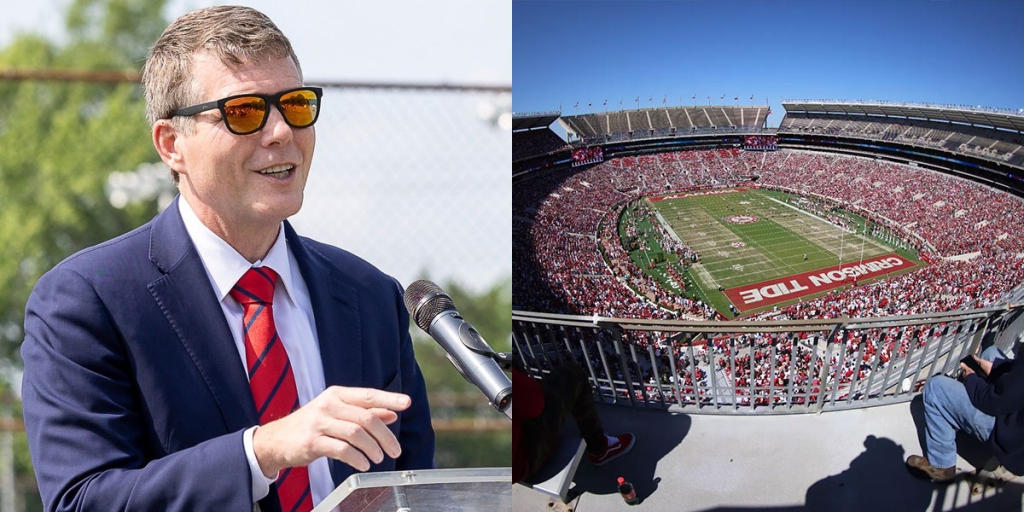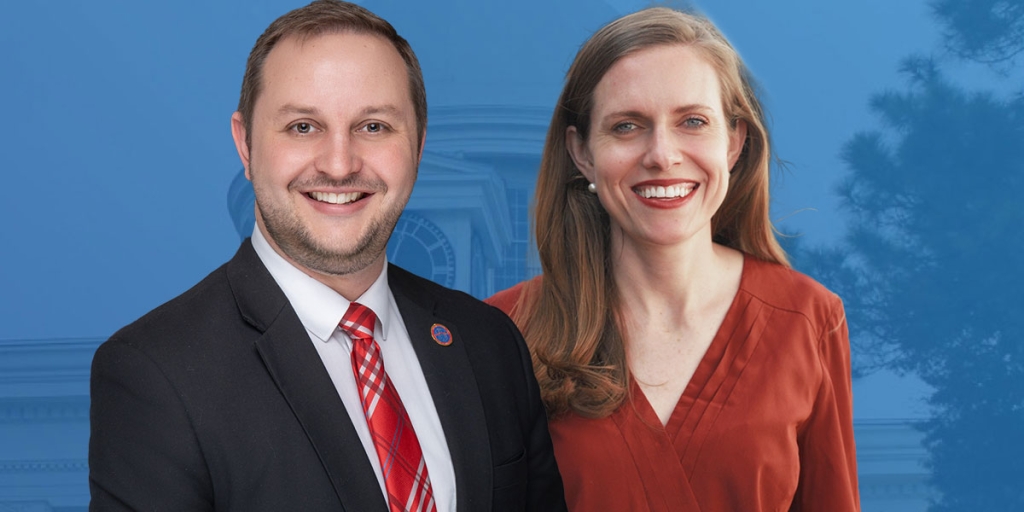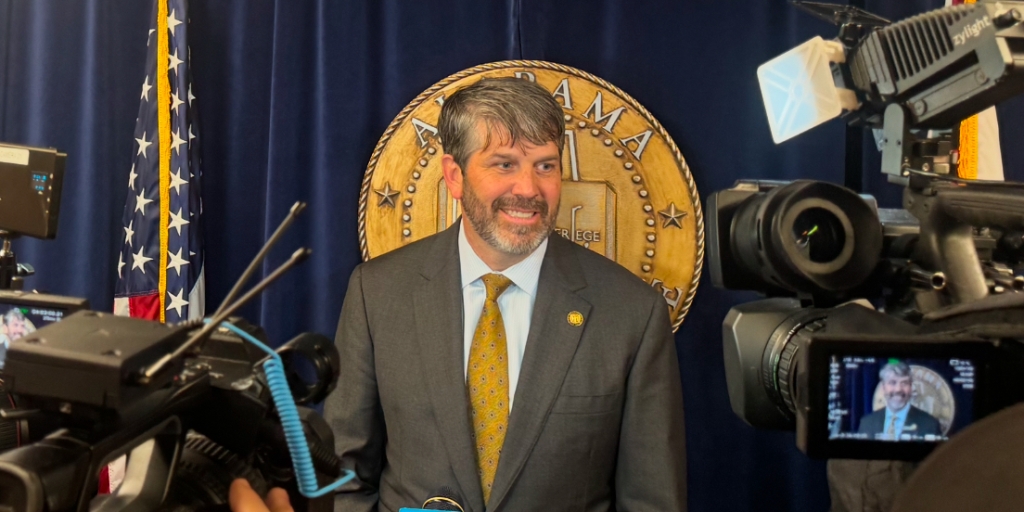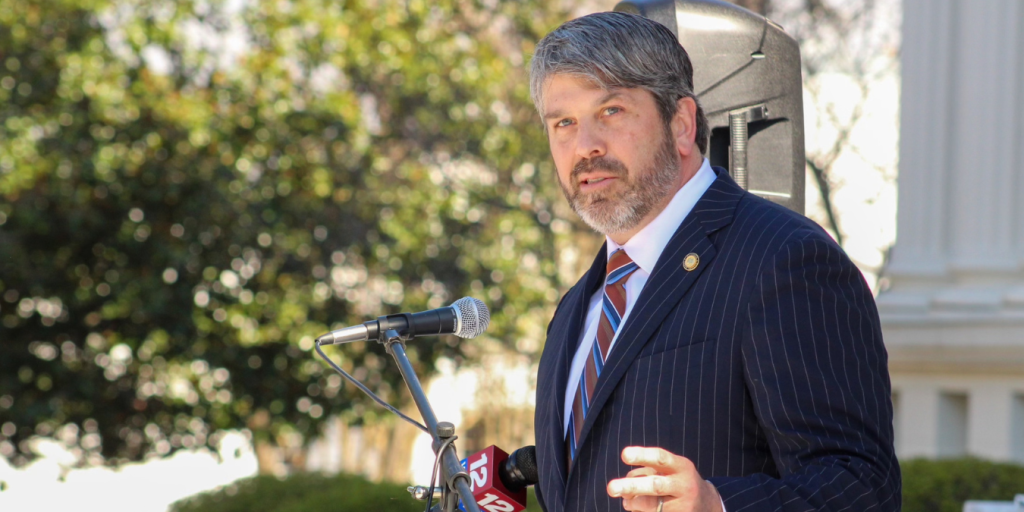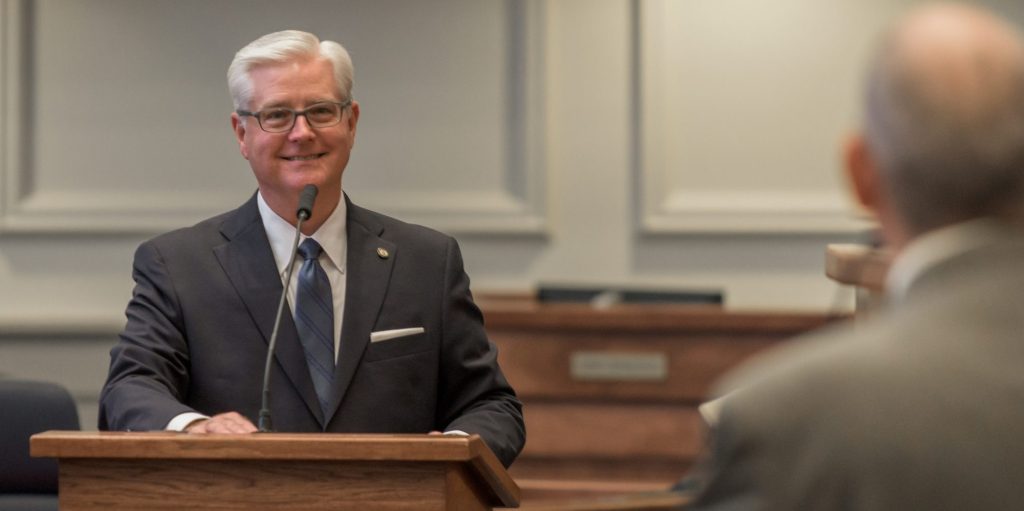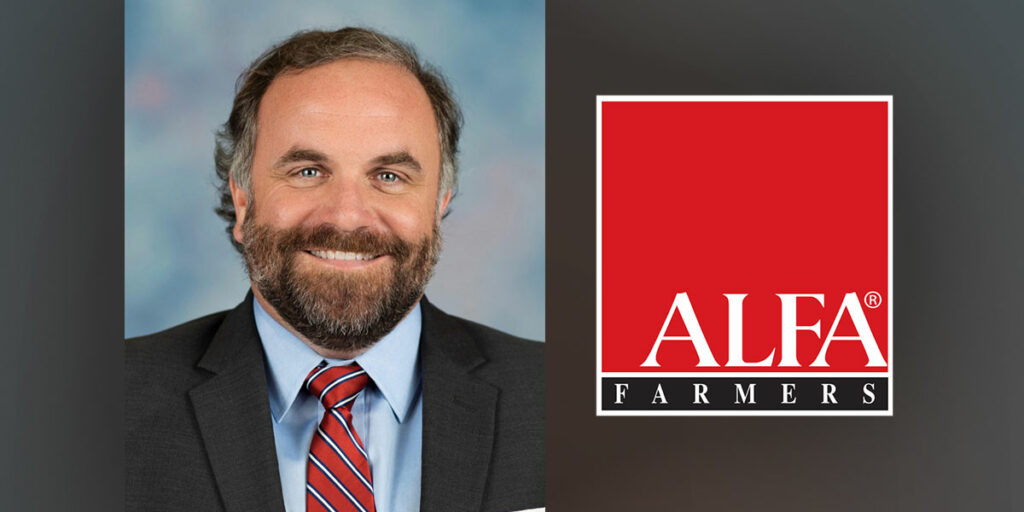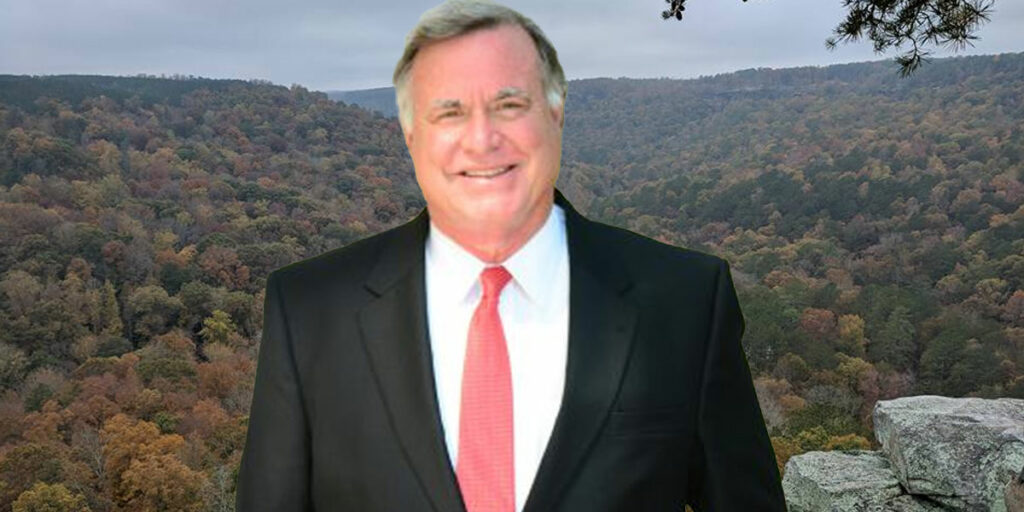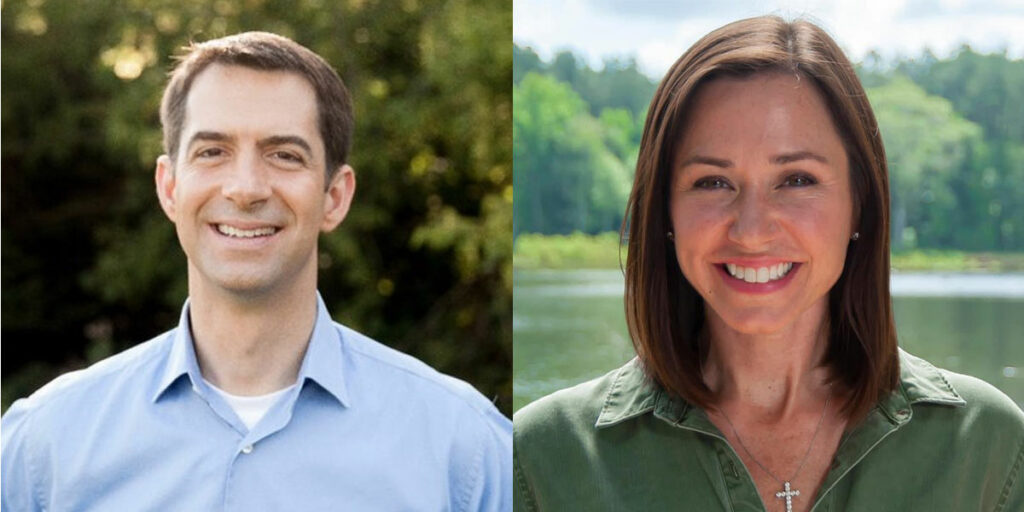The political prowess of the Alabama Senate Republican Caucus was on full display during the primary election cycle as its membership posted a dominating performance.
The campaign and fundraising apparatus constructed by Senate President Pro Tem Greg Reed (R-Jasper) and Senate Majority Leader Clay Scofield (R-Guntersville) enabled the upper chamber’s Republican membership to secure its positioning headed into November’s general elections.
Of its 27-member caucus, 24 senators were seeking reelection. In the early stages of the campaign cycle, 15 members were looking at the prospects of facing challengers to their seats. At the time of qualifying, however, the number of incumbent Republican senators facing competition shrunk to nine.
That number would later narrow to seven as the primary challengers to State Sens. Gerald Allen (R-Tuscaloosa) and Andrew Jones (R-Centre) were removed from the ballot in late February by the Alabama Republican Party.
Six of the caucus’ seven incumbent Republican senators won their respective elections outright, with State Sen. Tom Whatley (R-Auburn) of Senate District 27 being the only incumbent to have lost reelection.
After provisional ballots were counted Tuesday afternoon, Auburn City Councilman Jay Hovey reportedly defeated Whatley by a single vote. The official election results are expected to be certified Tuesday.
Senate Districts 11, 12 and 31 were open seats as State Sens. Jim McClendon (R-Springville), Del Marsh (R-Anniston) and Jimmy Holley (R-Elba) opted against seeking reelection to the legislature’s upper chamber.
According to unofficial results from the Alabama Secretary of State’s Office, senators who won their primary elections outright emerged victorious by a commanding average of 33.7%.
Unofficial election results for the 10 contested Senate seats are as follows:
Senate District 1
- State Sen. Tim Melson (R-Florence): 69.24%
- John Sutherland: 30.76%
Senate District 2
- State Sen. Tom Butler (R-Madison): 59.22%
- Bill Holtzclaw: 40.78%
Senate District 11
- Lance Bell: 72.96%
- Michael Wright: 27.04%
Senate District 12
- Keith Kelley: 35.42%
- Wendy Ghee Draper: 39.31%
- Wayne Willis: 25.27%
Senate District 13
- State Sen. Randy Price (R-Opelika): 78.65%
- John Allen Coker: 21.35%
Senate District 15
- State Sen. Dan Roberts (R-Mountain Brook): 59.31%
- Brian Christine: 40.69%
Senate District 17
- State Sen. Shay Shelnutt (R-Trussville): 68.55%
- Mike Dunn: 31.45%
Senate District 22
- State Sen. Greg Albritton (R-Atmore): 66.13%
- Stephen Sexton: 33.87%
Senate District 27
- State Sen. Tom Whatley (R-Auburn): 49.99%
- Jay Hovey: 50.01%
Senate District 31
- Josh Carnley: 50.20%
- Stormin Norman Horton: 9.41%
- State Rep. Mike Jones (R-Andalusia): 40.39%
Senate GOP leadership helped incumbents garner necessary funds to establish robust campaign infrastructures, much of which was raised through in-district constituency groups and supplemented by additional funds raised through association and various other means of support.
Less than $4 million was expended among the incumbent Republican senators, a number which pales in comparison to that in other races.
Under Reed’s direction, the caucus sought to raise sufficient funds but no more than what was necessary to protect the seats of its incumbents. By utilizing such a conservative amount of funds in the cycle, Senate GOP leadership paved the way for other Republicans across the state to become the beneficiary of increased dollars for their respective campaigns.
In a statement provided to Yellowhammer News, Reed spoke to the caucus’ impressive election night showing and touched on the collective effort to support its membership during the election cycle.
“The Alabama Senate Republican Caucus had an extremely successful primary election cycle,” advised Reed. “Of the 27 caucus members, seven of our incumbents had primary opposition. Our caucus worked diligently and effectively to see that our incumbents were re-elected with campaign and fundraising support.”
Reed noted that with a dominating performance in the primary election cycle in the books, the caucus will now turn its focus to protecting its supermajority in the general election.
“Also of the 27 Senate Republican Caucus members, there were three vacant seats due to the retirements of Senators Holley, Marsh, and McClendon,” added the Senate leader. “In those three open seats, each district had several qualified candidates seeking to serve those districts. We are ready to support each of these candidates along with our incumbents in the general election and look forward to assembling our caucus in November for the upcoming quadrennium.”
The Republican nominee for Senate District 12 will be determined in the June 21 runoff election. The Senate GOP Caucus will look to defend six seats that face Democratic opposition in the November 8 general election.
EDITOR’S NOTE: This article was updated at 3:31 p.m.
Dylan Smith is a staff writer for Yellowhammer News. You can follow him on Twitter @DylanSmithAL




